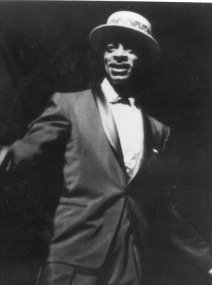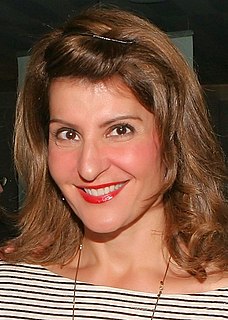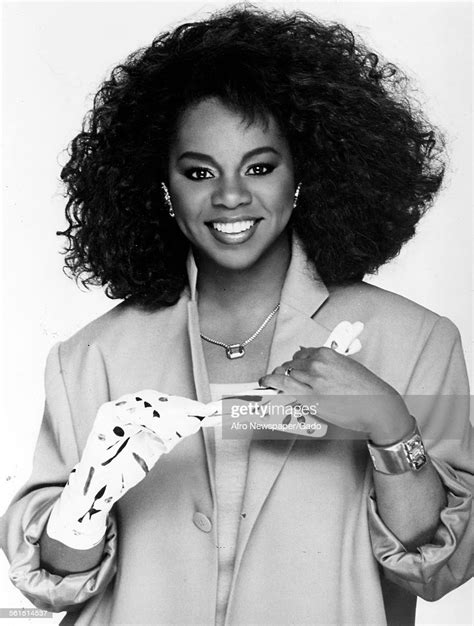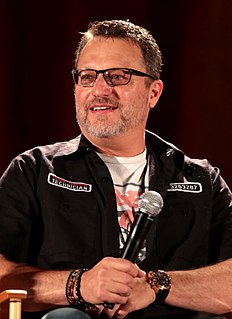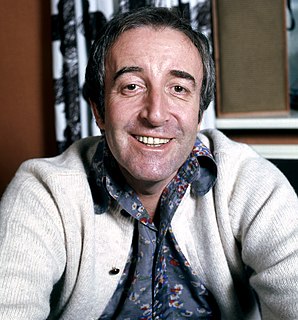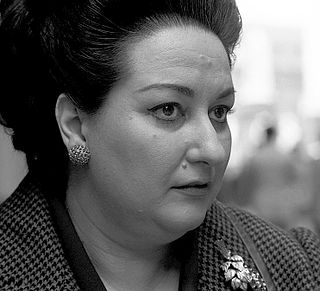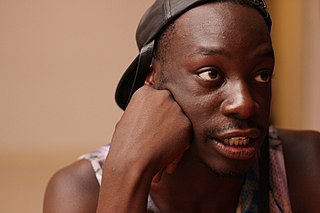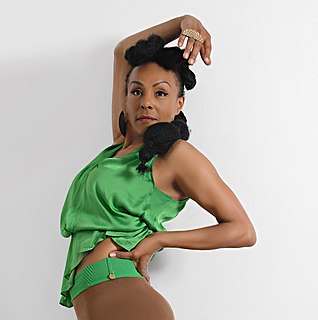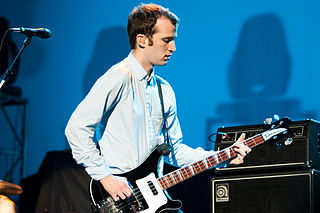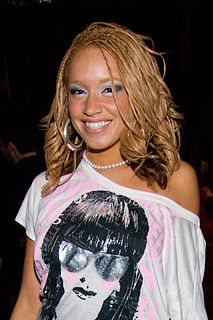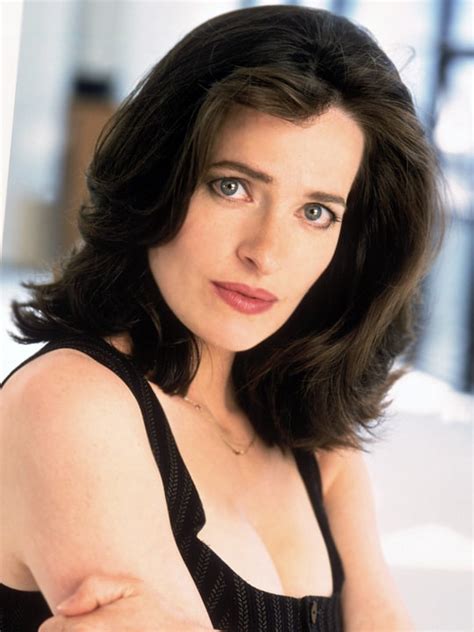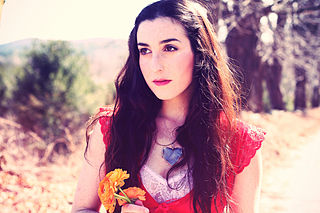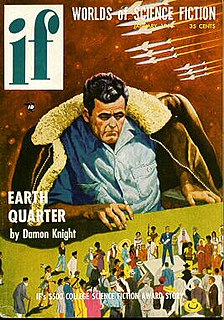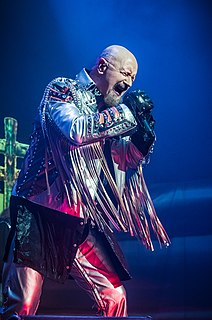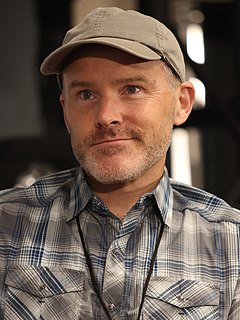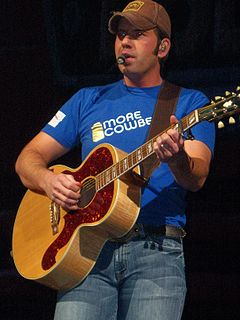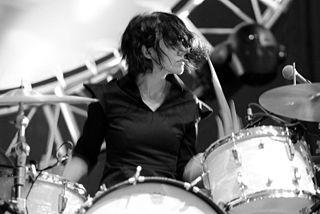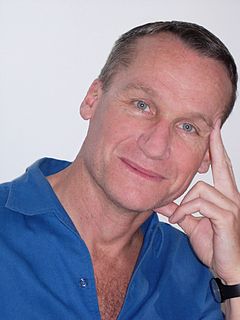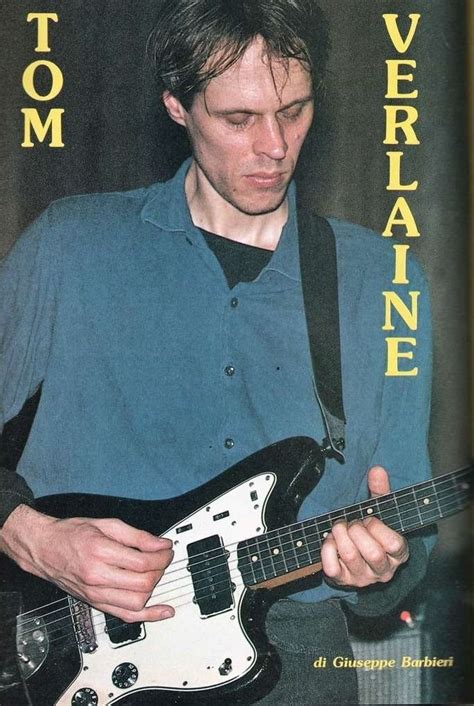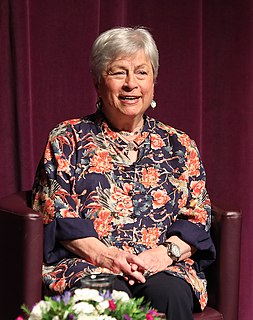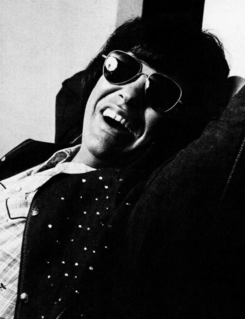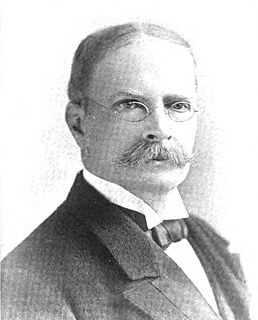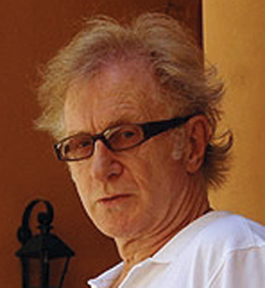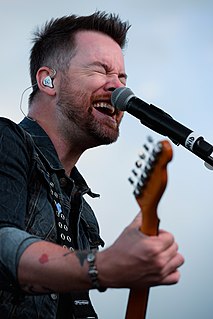Top 791 Vocal Quotes & Sayings - Page 13
Explore popular Vocal quotes.
Last updated on November 12, 2024.
If you are recording, you are recording. I don't believe there is such a thing as a demo or a temporary vocal. The drama around even sitting in the car and singing into a tape recorder that's as big as your hand - waiting until it's very quiet, doing your thing, and then playing it back and hoping you like it - is the same basic anatomy as when you're in the recording studio, really. Sometimes it's better that way because some of the pressure is off and you can pretend it's throwaway.
For some reason, the most vocal Christians among us never mention the Beatitudes (Matthew 5). But, often with tears in their eyes, they demand that the Ten Commandments be posted in public buildings. And of course, that's Moses, not Jesus. I haven't heard one of them demand that the Sermon on the Mount, the Beatitudes, be posted anywhere. "Blessed are the merciful" in a courtroom? "Blessed are the peacemakers" in the Pentagon? Give me a break!
Next to the defeated politician, the writer is the most vocal and inventive griper on earth. He sees hardship and unfairness wherever he looks. His agent doesn’t love him (enough). The blank sheet of paper is an enemy. The publisher is a cheapskate. The critic is a philistine. The public doesn’t understand him. His wife doesn’t understand him. The bartender doesn’t understand him.
speaking with, uh, about the vocal choreography, one of the first groups that I worked with was a group called the Cadillacs, which was uh, an exceptionally talented group. They all moved well and they sort of established Cholly Atkins's style. In other words they basically put me on the map, and everybody would look at them and see their choreography and they wanted to know who did it, so they would tell them.
Words reduce reality to something the human mind can grasp, which isn’t very much. Language consists of five basic sounds produced by the vocal cords. They are the vowels a, e, i, o, u. The other sounds are consonants produced by air pressure: s, f, g, and so forth. Do you believe some combination of such basic sounds could ever explain who you are, or the ultimate purpose of the universe, or even what a tree or stone is in its depth?
My singing - it's who I am, it's all of me and it's my soul. The self expression of using your vocal equipment is not only physical and spiritual, but it's something you can't explain. It's your heart and soul together. Yes, I enjoy acting, but I portray other people. But when I sing, it's just me on that stage, communicating how I feel, how I think and what I believe.
I started out doing improvised voices when I started working in a program where I read for kids in schools. I had some kids and they asked me if I would mind doing it. I was very happy to do it. That's where I got my training before I went to the public. I did that for several years. It was actually the best vocal training I could have had.
Artemis must be present at the solstice," Zoe said. "She has been the most vocal on the council, arguing for taking action against Kronos's minions. If she is not there, the gods will decide nothing. We will lose another year of war preparations." Are you sugesting the gods have trouble acting together, young lady?" Dionysis asked. Yes, Lord Dionysis." Mr.D nodded. "Just checking. Your right, of course. Carry on.
Vocal music is an attempt to take the whole human being and project it into space. It is the ultimate gesture of getting out of yourself. You take a part of you that is most private, most personal, most inward and you hurl it out into space - you project it as far as you can. That gesture of opining this whole region of the body results in an enormous spiritual release, and is felt by other people with tremendous impact.
We all have--to put it as nicely as I can--our lower centres and our higher centres. Our lower centres act: they act with terriblepower that sometimes destroys us; but they don't talk.... Since the war the lower centres have become vocal. And the effect is that of an earthquake. For they speak truths that have never been spoken before--truths that the makers of our domestic institutions have tried to ignore.
I started out doing improvised voices when I started working in a program where I read for kids in schools. I had some kids and they asked me if I would mind doing it. I was very happy to do it. Thats where I got my training before I went to the public. I did that for several years. It was actually the best vocal training I could have had.
When we listen to improvisational jazz, or solo classical violinists, the way they phrase and inflect melodies feels vocal, like they’re talking to us. When I was figuring out how to perform solo, I wanted to move back and forth between bass riffs, melody, and harmony, so I often used sounds instead of — or alongside — the words of a song. I found that if I sang a line using the consonants, vowels, shadings, and inflection we recognize as human language sounds, people responded as if I were talking to them.
I still feel like if I can get a song to work with, say, a basic beat, a rhythm, some chord changes, and a melody, a vocal melody - if it works with that, then I feel it's written and there's something there. So I intentionally don't get involved with arranging stuff or fussing over the sounds and the edits and the beats too much, at least not in the beginning, because I feel like then you can fool yourself that you've got something there, when you might not.
The problem that we have is some of the more vocal countries, which parade themselves as Islamic countries, are, in fact, brutal dictatorial regimes. We don't accept them as being Sharia at all, because, what they tend to do, is they tend to just implement several aspects of the penal code and one or two morsels of the social system, but the rest of the system, like providing the basic needs and the social aspects of society and an education system, is completely ousted.
I tried to stay away from the Euro beats, and not go totally pop. Instead, I wanted to take the Quincy Jones approach. The record pays homage to the Stevie Wonders, the Michael Jacksons, the Sam Cookes. I wanted to put that classic essence of R&B and soul with the new age of music now. There’s a lot of live instruments, and a lot less Auto-Tune. I really wanted to demonstrate my vocal ability, creating the vibe of me singing along with a band.
I'm very aware that pro wrestling fans can be some of the most vocal and passionate and descriptive about how they feel when it comes to pro wrestling. So I'm totally fine with how fans talk about how they feel, cause if they're not allowed to voice how they feel, then what's the point of being a wrestling fan. You gotta know what you like and what you do't like and that's fine.
I'm the only person in my family who can't sing. My grandmother was an opera singer and all of her kids were in church five days a week - or between church and vocal lessons at Carnegie Hall. But my mom had her first studio experience recording on my album. She's used to having to fill the room, so she had to adjust to the microphone and not sing opera.
I get really worried, like if they say, 'Take vocal lessons,' or something because it's kind of like I used to really love to draw when I was a kid and then I took like an art class - because everyone said, 'Oh, you're so good, you should take a class and maybe you can be really good,' and then I went to the class and then they showed me how to use a ruler and perspective and all this stuff and it totally made me not want to do it at all.
I have a love/hate relationship with Amy Grant, but I do go back to her Christmas albums once in a while. They're dated and sentimental and the production is nearly unlistenable, but there's something about her vocal performance that just feels really true. I would take her Christmas albums over Mariah Carey's or Destiny's Child's any day.
As far as vocal preparation goes, it's really an interesting thing for such a fragile instrument and using it properly is like walking a tightrope. I have learned not to do extensive warm-ups. It's really more of a cerebral mind-body connection Zen hippy thing, just knowing your body and figuring out if I do that then I will be able to speak tomorrow.
I made music on Seven the same way as on the other albums. I only used acoustic instruments... I'm looking for instruments that have vocal sounds, forgotten instruments like the guimbri... The first and second albums were about the voice, what came before. This album is about introducing those sounds into modern, Western life.
I guess in general, because it's such a popular trend in mainstream American pop, that there's been some kind of negative reaction to it. But at the same time, it's a really interesting effect and really interesting texture, and a lot of credit goes to Rostam for producing our music, and all the work that he puts into it, and just trying different things. Ezra did a vocal take, Rostam threw auto-tune on it, and we all liked the way it sounded.
I started singing about three years ago, I entered a local singing competition called Stratford Idol. The other people in the competition had been taking singing lessons and had vocal coaches. I wasn't taking it too seriously at the time, I would just sing around the house. I was only 12 and I got second place.
I do believe that oil production globally has peaked at 85 million barrels. And I've been very vocal about it. And what happens? The demand continues to rise. The only way you can possibly kill demand is with price. So the price of oil, gasoline, has to go up to kill the demand. Otherwise, keep the price down, the demand rises.
There are so many people in this world that have the look and have talent, and yet they keep putting out this teenybopper singers that have no vocal capability at all. Sometimes I think there's no real music anymore. We don't have singers like we did back in the day. Music is supposed to convey a message. Music is supposed to make you feel a certain way. Now, I don't want to hear about big bootie shaking on the floor. Music just isn't what it used to be. I think that with the times changing, labels do actually need to get that and stop signing all these crap artists.
Well, you know, going into any project, especially with a fan base as vocal and passionate as something as "Star Wars," you will have groups of people who will find issues with whatever it is you're doing. But our job was to tell the best story we could about characters that we loved, and we knew that we needed to go backwards to go forwards, and we needed to go back to a feeling and a place and a time.
As Muslims, we must have an active presence based on ethical and moral consistency. We need to be very vocal, to inform people, to demonstrate when necessary. We need to write so that the people understand that what they are getting from the media and politicians is biased and not accurate. And this is true especially when it comes to some communities within the U.S. or with respect to the Middle East and Africa. This is what I am expecting from a new generation of leaders: Meet these expectations of moral consistency.
I think the culture of the feminine needs to be reinvigorated and women need to build a culture that is connected all over the globe to reinforce this new-found power in the body. Women have been divided to be conquered. No one person did this. It's been a cultural evolution. The masculine nature is very out there and vocal and very much espousing their point of view, and God bless them. The female culture needs to learn to do the same.
I was in art school, and we had all these random classes. We'd listen to a lot of Bollywood. I'd listen to Spanish music - and I don't even speak Spanish, but Hector Lavoe is amazing - we listened to French music like Edith Piaf. She's tight. I like cool vocal inflections; I like cool sounds. I pretty much listen to anything I think is good.
I definitely get my artistry and my vocal talent from my mother and mother's side. She sang in a jazz trio band so growing up my dad would always take me to see her play and she has a beautiful voice. When I was little and started to sing, she supported me and let that fire burn. She always knew what it took as a support system.
I love anything hearty and I'm very vocal about my hatred for turkey. I just, I will never understand people's love for turkey - and everyone will cry out, 'Well, you haven't made it the right way!' and it's like, no I have. I have deep-fried it, I've done the beer can turkey, I've done everything possible - I've had the fancy stuffing inside, I've had the Stove Top Stuffing inside - no! It's bad, any which way.
For the first records I really never thought about anything other than the song itself. I thought that this was what the job of a songwriter was. I was really approaching music from a very different standpoint. To me when I was younger the song was just the melody. I think as I've gotten older and have been recording myself I've become aware of just how many layers can exist within a song besides just the main vocal.
When I came to the United States in 1975 I was eleven, and within a few months my voice broke. I recited commercials like a parrot and I got yelled at quite often. My older brother one night said, "You speak so much English when you're not supposed to, that's why your vocal chords shattered. Now you sound like a duck." I thought it was true. I went from this sweet-voiced Vietnamese kid who spoke Vietnamese and French to this craggy-voiced teenager.
For now she need not think of anybody. She coud be herself, by herself. And that was what now she often felt the need of - to think; well not even to think. To be silent; to be alone. All the being and the doing, expansive, glittering, vocal, evaporated; and one shrunk, with a sense of solemnity, to being oneself, a wedge-shaped core of darkness, something invisible to others... and this self having shed its attachments was free for the strangest adventures.
I'd like to drill in a little more detail into one aspect of cutting which is particularly close to me and that's dialogue editing. It is a vital part of editing especially in animated film, but in the end it is usually completely transparent to the audience. The vocal performances are reported for over several years and the actors are very rarely in recording studios together. That's why the editor has got to all these different performances and edit them together to create the illusion of spontaneity and real action.
Sarah Palin kept talking and talking, and the more she talks, the less compelling she can be. People say, "She's a very good politician, very deft at what she does," and whatever. And I hear that sometimes and go, "I don't know much about this stuff, but I would say no." Because the really good politician expands the audience, not contracts it. She may be getting a very vocal crowd, but it's a very specific group.
By focusing on the interior of a speaker's larynx and using infrared, he was able to convert the visible vibrations of the vocal cords into sound of fair quality, but that did not satisfy him. He worked for a while on vibrations picked up from panes of glass in windows and on framed pictures, and he experimented briefly with the diaphragms in speaker systems, intercoms and telephones. He kept on into October without stopping, and finally achieved a device that would give tinny but recognizable sound from any vibrating surface - a wall, a floor, even the speaker's own cheek or forehead.
It is agreed that all sound which is the material of music is of three sorts. First is harmonica, which consists of vocal music; second is organica, which is formed from the breath; third is rhythmica, which receives its numbers from the beat of the fingers. For sound is produced either by the voice, coming through the throat; or by the breath, coming through the trumpet or tibia, for example; or by touch, as in the case of the cithara or anything else that gives a tuneful sound on being struck.
Being a perfectionist, I didn't want to settle for just getting by, so I enrolled in a vocal training program. I then learned that songwriting and studying the voice actually pair with a lot of troubles that I had expressing myself, being vulnerable, trusting other people, trusting myself, calming anxiety. It became a life instructor of sorts and that is what kept me engaged with it.
All those "getting hit/losing rings" sounds tend to be recorded toward the end of a recording session. Depending on the type of game, those efforts and screams can be pretty rough on the voice, so they usually like to record them at the end. You might do hundreds of versions of vocal sounds for a game and you can come out a little hoarse afterward.
I've never really focused on if I had good habits when I sang or if I had bad habits, or if I was breathing correctly. So, I started doing vocal exercises and would stretch out before I sang, stuff to help my breathing. It's funny, you breathe your whole life then you find out you're not doing it correctly.
We, Autolux band, write in very different ways; sometimes we play with the band and write music first and then form vocal parts and lyrics. Or I'll find some music, or a guitar part or something, and I'll just write an entire sketch of an idea from that. So I think things have always been that way, it's just that this time around we had some more obstacles off and on all the time.
No matter how many people try, no matter how many fancy songwriters in Los Angeles try to break it down to a formula... to an extent, there isn't a science to writing great songs, I suppose. For me, it's always about melody - it doesn't matter what genre of music you're writing, if there's a strong melodic thing somewhere, whether that's in a vocal or in a guitar part or a sample. Something that sticks in your brain, that seems to be something that works.
I feel like, in many ways, Billie Holiday's still very under-appreciated as an artist. People focus on her voice, and all of the very recognizable vocal things that she does, which are great. But I wanted to, with this project, start the conversation again about her as a radical feminist, as a civil rights activist - taking a stance. And also just [her] being a non-conformist.
Every band should study Queen at Live Aid. If you really feel like that barrier is gone, you become Freddie Mercury. I consider him the greatest frontman of all time. Like, it's funny? You'd imagine that Freddie was more than human, but... You know how he controlled Wembley Stadium at Live Aid in 1985? He stood up there and did his vocal warm ups with the audience. Something that intimate, where they realize, 'Oh yeah, he's just a f***ing dude.'
People speak because they are afraid of silence. They speak mechanically whether aloud or to themselves. They are intoxicated by this vocal gruel that ensnares every object and every being. They talk about rain and fine weather; they talk about money, about love, about nothing. And even when they are talking about their most exalted love, they use words uttered a hundred times, threadbare phrases.
I started playing instruments before I started making beats, and I was never the best guitarist or the best pianist or the best drummer. And when I started making beats, I was not the best beatmaker, and when I started making hooks, I was not the best vocal melody person. When I first started rapping, I wasn't the best rapper at all.
I knew I had to have a hit. I would get no more chances. Analyzing what they had in common I discovered they had many similar elements: harmonic rhythm, placement of the chord changes, choice of harmonic progressions, similar instrumentation, vocal phrases, drum fills, content, even the timbre of the lead solo voice. I decided to write a song that incorporated all these elements in one record.
I write a lot of more instrumental music than I do vocal music. It's because I come out of a background of playing piano and then playing sax for a number of years. I kind of got into rock backwards. A lot of guys go into rock and then get sick of it and then go into something else. I came the other way, so I've always just had a lot more stuff lying around.
This approach to voice is designed to liberate the natural voice and thereby develop a vocal technique that serves the freedom of human expression. The basic assumption of the work is that everyone possesses a voice capable of expressing, through a two- to four-octave natural pitch range, whatever gamut of emotion, complexity of mood, and subtlety of thought he or she experiences.
I'm a singer, not a vocal stylist. My breathing is correct; my enunciation is precise. Because of that, I can sing anybody's music. Yet there are stylists whose technical skills are so underdeveloped they can sing only their own songs their own way. They might be remembered for their hits longer than I am. I'll probably be working longer than they are. I can sing whatever the times and the trends demand.
But the finest music in the room is that which streams out to the ear of the spirit in many an exquisite strain from the hanging shelf of books on the opposite wall. Every volume there is an instrument which some melodist of the mind created and set vibrating with music, as a flower shakes out its perfume or a star shakes out its light. Only listen, and they soothe all care, as though the silken-soft leaves of poppies had been made vocal and poured into the ear.
I get to listen to a lot of this music again doing my DJ work on Little Steven's Underground Garage. To hear Van [Morrison] on Them's version of "It's All Over Now, Baby Blue"- what a vocal, and what an arrangement. Also, I get to hear so many records that I missed the first time around - The Chocolate Watchband, Roky Erikson. It's an audio food fest, a total privilege, a second chance.
I always believe that every song tells a story, so the last thing I want to do is edit out like the meat of the story. I would pick songs based off a), whether I felt like I could do anything with them, and b) whether I felt like I could keep the story intact. And then you sit in with one of the piano players and one of the vocal coaches and kind of work out your arrangements that way.



